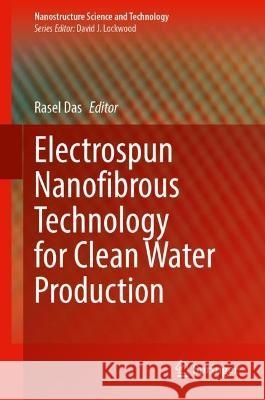Electrospun Nanofibrous Technology for Clean Water Production » książka
topmenu
Electrospun Nanofibrous Technology for Clean Water Production
ISBN-13: 9789819954827 / Angielski / Twarda / 2023
This book covers the remarkable progress in the field of electrospun nanofibrous materials synthesis that has been made in recent years for clean water production. The goal is to offer comprehensive and substantial contents in each chapter, entailing the electrospinning principle, novel materials and methods, properties, characterization, and applications, such as adsorption, catalysis, and membranes. The book is instrumental in terms of showing the scale-up production of desired fibers that ensure the control of the structure–properties relationship for developing effective water treatment technologies. Every chapter ends with a special section for highlighting research challenges and breakthroughs, so that scientists can explore these opportunities and discover new directions for future developments. Material scientists, nanotechnologists, chemists, engineers, water specialists, and environmentalists will be inspired by the information on electrospun nanofibrous materials to be found in the book. The wide variety of new ideas and recommended future reading will encourage early-career scientists working in this field to design new experiments and practices. The book is useful for college and university-level students enrolled in project courses in materials science and related fields.











